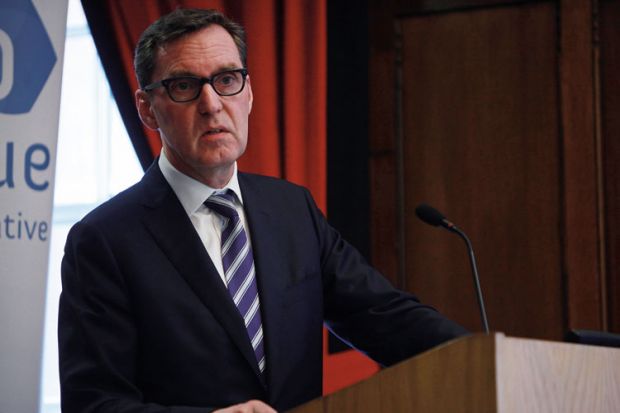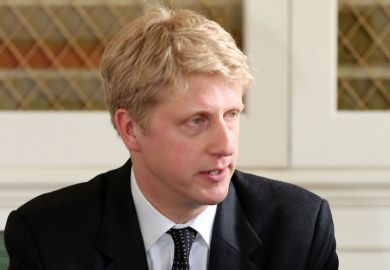Alan Milburn, the government’s adviser on social mobility, has warned against cuts to funding for the poorest students, amid suggestions that the Green Paper has been delayed to go alongside a David Cameron speech as the prime minister makes university access a major priority.
Mr Milburn, the chair of the Social Mobility and Child Poverty Commission, who is also chancellor of Lancaster University, told Times Higher Education that the Green Paper represents “an opportunity to translate good intention into action” on widening participation.
But with the spending review looming on 25 November and cuts to funding to student opportunity funding rumoured to be one option on the table, he said that it would be a concern if widening participation “was being signalled as a priority rhetorically but wasn’t being backed with money”.
Meanwhile, some in the sector suggest that the reason behind the delay in the government’s higher education Green Paper – which had been scheduled for publication on 15 October but is now understood to be pencilled in for a release this week – is No 10’s desire to coordinate its publication with a speech by Mr Cameron on widening participation.
During the election campaign, the prime minister set a target to double the proportion of young people from disadvantaged backgrounds entering higher education from 13.6 per cent in 2009 to 28 per cent in 2020. He also announced last month that Ucas applications would become “name-blind” to tackle racial bias against ethnic minority students.
There are suggestions that one factor behind Mr Cameron’s growing focus on widening participation is that, in the wake of the government’s decision to abolish child poverty targets which were being missed, universities are one of the key fields where the Conservatives can demonstrate a commitment to social mobility.
Mr Milburn, a former Labour Cabinet minister, said that a lot of Mr Cameron’s focus on widening participation “is driven by a determination to prove that the new government can be a genuinely One Nation government” in the wake of a general election result that was not necessarily “a vote of acclaim” for the Conservatives.
But he warned that “despite the progress of the last decade and a half” on widening participation, it “remains very challenging for universities to meet the prime minister’s objective. It looks like on current rates of progress…that objective will not be hit in 2020. It would probably not happen until 2025.”
Mr Milburn also pointed to potential policy obstacles to meeting the target, including “the change from living grants for poorer students to loans".
Asked what the widening participation priorities should be in the Green Paper, Mr Milburn said that existing evidence suggests efforts should be “focused increasingly on outreach work”. Whether through summer schools or universities establishing relationships with schools in poorer areas, he argued that outreach “really does pay dividends for the longer term”.
And he also referred to funding: “We would be concerned, obviously, if widening participation was being signalled as a priority rhetorically but wasn’t being backed with money. Government does, frankly, have to put its money where its mouth is here.”
He added: “Obviously BIS [the Department for Business, Innovation and Skills] are under considerable duress in terms of their overall position. Higher education has a rather important claim on BIS resources. So we would be concerned if there were wholesale cuts to widening participation funding.”
Register to continue
Why register?
- Registration is free and only takes a moment
- Once registered, you can read 3 articles a month
- Sign up for our newsletter
Subscribe
Or subscribe for unlimited access to:
- Unlimited access to news, views, insights & reviews
- Digital editions
- Digital access to THE’s university and college rankings analysis
Already registered or a current subscriber?






